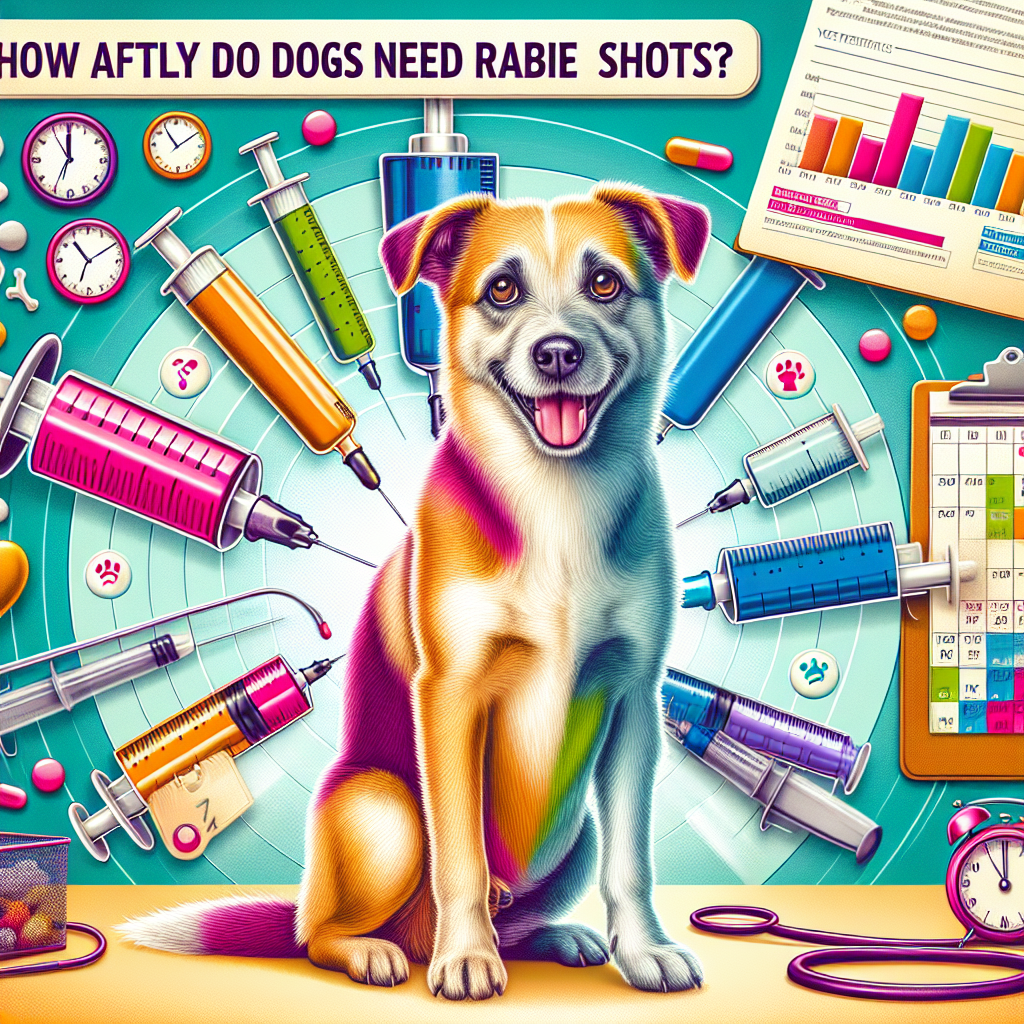How Often Do Dogs Need Rabies Shots?
Rabies is a serious viral disease that affects the nervous system of mammals, including humans. Vaccination remains the most effective way to prevent rabies, and keeping your dog up-to-date with their rabies shots is crucial for both their safety and public health.
Understanding Rabies Vaccination
The rabies vaccination is typically administered in two phases: the initial vaccination and subsequent booster shots. The frequency of these shots can vary based on several factors, including the dog’s age, local laws, and the type of vaccine used.
Initial Vaccination
-
Puppies: The first rabies shot is usually given when your puppy is about 12 to 16 weeks old. This timing is crucial because younger puppies have maternal antibodies that can interfere with the vaccine’s efficacy.
- Adult Dogs: If your dog is over a year old and has never been vaccinated, they will require an initial rabies shot followed by a booster.
Boosters
After the initial vaccination, dogs typically need rabies booster shots to maintain immunity:
-
One-Year Vaccination: Many vaccines offer protection for one year, requiring an annual booster.
- Three-Year Vaccination: Some vaccines provide immunity for up to three years. Once your dog receives this shot, they will only need boosters every three years, depending on local regulations and veterinary advice.
Local Regulations
It’s essential to be aware of local laws regarding rabies vaccinations, as they can differ significantly between states and even municipalities. Many places mandate rabies vaccinations for dogs, and non-compliance can lead to fines or legal issues, especially if a dog bites someone or is involved in a rabies exposure incident.
Factors Affecting Vaccination Schedule
-
Dog’s Health Status: If your dog has health issues, your veterinarian might recommend a specific vaccination schedule.
-
Lifestyle and Environment: Dogs that engage in activities where they might encounter wildlife—like hiking or living in rural areas—may need more frequent vaccinations.
- Age: Older dogs may have different health considerations that could affect vaccination frequency.
Importance of Rabies Shots
Vaccinations protect not just your dog but the broader community. Rabies is a zoonotic disease, meaning it can be transmitted to humans. In the United States, rabies is mostly found in wildlife, but unvaccinated pets can pose a risk to both their guardians and other animals.
Conclusion
Ensuring that your dog receives rabies vaccinations at the appropriate intervals is a vital part of responsible pet ownership. Regular check-ups with your veterinarian can help you stay on top of your dog’s vaccination schedule and ensure their continued health and safety. By taking these preventive measures, you contribute to a safer environment for everyone.





